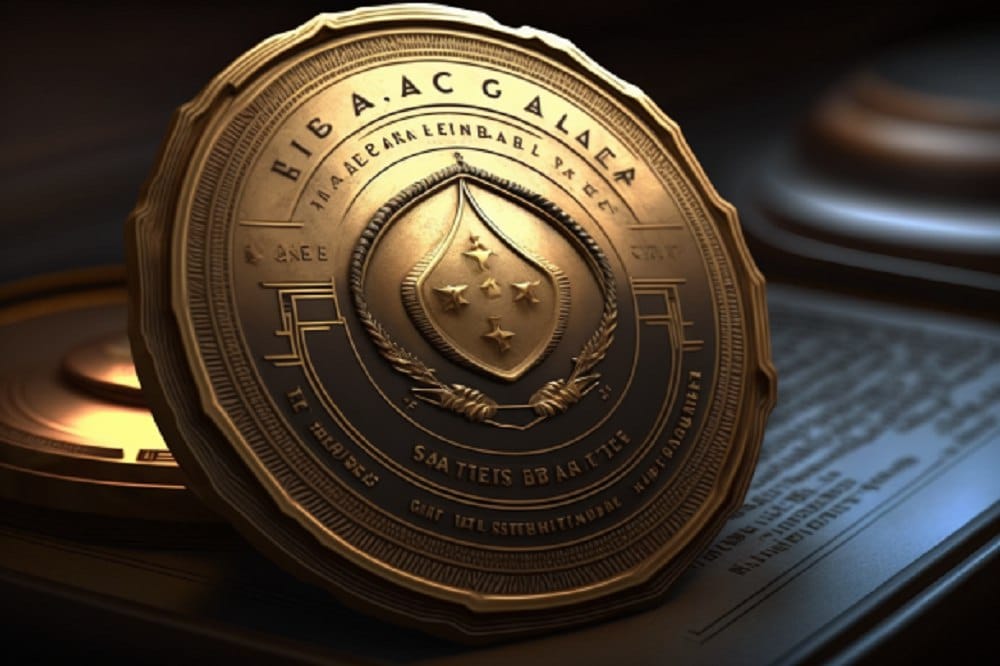
US House Committee Releases Draft Stablecoin Bill
The US House of Representatives has published a draft bill outlining the regulatory framework for stablecoins. The 72-page report has incorporated the procedures for paying stablecoin providers, the feature of the digital dollars, and the role of financial watchdogs.
The Federal Reserve has been mandated to oversee the operation of non-banking stablecoin issuers. The Fed will supervise the operation of crypto firms issuing Tether (USDT) and USD Coin (USDC).
Overview of the Stablecoin Bill
In addition, the draft report has provided the proper definition of cryptos and highlighted the legal process regulators should observe. According to the report, a stablecoin is grouped as a crypto asset backed by a specific currency that can stabilize the prices in the market.
The first stablecoin introduced to the market was the BitUSD, launched in 2014. Beyond this, the April 15 publication stated that the depository institution providing stablecoins would be governed by the Federal Banking Agency.
The Federal Reserve will control the non-banking institution under specific conditions. The report has underscored the legal action the non-compliant financial providers issuing stablecoins will face.
Per the draft, stablecoins issuers operating without fulfilling the registration requirements will be placed behind bars for five years. Subsequently, the violation of the registration procedure will expose the investor to a $1 million court fine.
The report has also mentioned the registration processes for foreign investors’ operations outside the American market. Crypto firms pursuing new markets in the US must seek regulatory approval before proceeding with their businesses.
The regulators must conduct a background check to assess the suitability of foreign investors seeking to enter the US market. At the primary registration stage, the applicant should disclose his financial status.
Review of Proposed Stablecoins Regulations
The investor financial report will enable the regulators to examine whether the applicant can maintain a substantial reserve backing the stablecoins. The stablecoin can be pegged to either the US currency or the Treasury bills with a maturity of 90 days.
In addition, the applicant should be tech-savvy and possess unique skills for resolving technical challenges. The applicants should invest in developing the governance tools to support financial inclusivity.
Also, the applicant should prioritize developing revolutionary infrastructures to boost innovation in the stablecoins sector.
The draft revealed non-compliant investors who will issue stablecoins without backing them into a digital asset would be banned from providing crypto services for two years.
The US Treasury team has been tasked to conduct an extensive study on “endogenously collateralized stablecoins.” This research will investigate strategies the investor will implement to maintain stable prices.
The draft expounded on the features of “endogenously collateralized stablecoins,” which comprise the value of different crypto assets used to support the stablecoin. The report has allowed the US authority to develop standards for improving the interoperability capability of stablecoins.
In light of the April 15 report, the Fed must work with Congress representatives and members of the White House to examine the appropriate methods for issuing digital currency.
Elsewhere, the House of Representative spokesperson Patrick McHenry stated that the publication was first issued to the US policymakers for evaluation purposes.
The publication was issued to the public when the House of Financial Services regulators planned to host a discussion concerning issuance and regulations for stablecoins on April 19. The meeting will be attended by the Circle’s head of global policy Dante Disparte.
A representative from the Blockchain Association, Jake Chervinsky, and a Columbian scholar Professor Austin Campbell have confirmed their attendance.
Before April 19, the US Securities and Exchange Commission chair, Gary Gensler, will address the House of Representatives on matters concerning cryptos. Gensler’s speech will elaborate on the amendment in the SEC regulation and the classification of crypto assets and securities.
In a previous statement, Gensler explained the definition of an exchange. He cited the Federal Exchange Act, which considers crypto trading activities as exchanges.
The publication has encouraged Circles chief executive Jeremy Allaire to update the Twitter community. He emphasized the need for the customers to support the regulators in supervising the issuance of digital dollars. The Allaire tweet highlighted the importance of improving the security of the distribution of digital currency.




